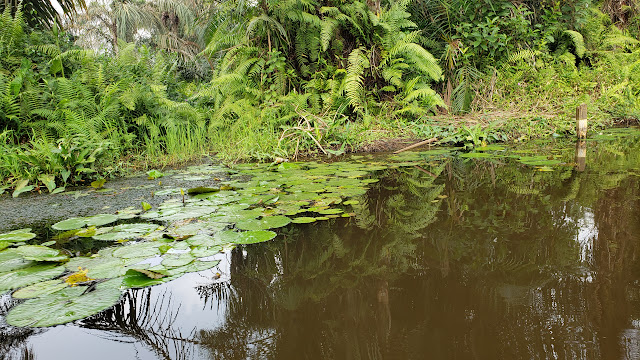It was a horrible disaster
Just a few yards down the street from where we held our farm training class last week a fuel truck veered off the road and turned on its side. Fuel began leaking from the tank. Because of their poverty the villagers came over with buckets to collect the leaking fuel. For a reason that has not been determined the fuel exploded.
Forty one people were instantly burned to death. About another 100 have life threatening burns. The pictures that were sent to me showed charred skeletal remains and many people with 3rd degree burns. Liberia is about the last place in the world you would want to have a serious burn injury. There is no real medical care for them. Already a week later the death toll has almost doubled and is expected to rise significantly. Maybe 180 people when it's all over with.
Even though only two members of the church were injured the church ended up being the first response to the emergency. We arranged hospital care, found medicine, arranged transportation to the hospitals, paid for doctors and provided food to the village. Now a week later the government has stepped in, even the president elect has visited the site.
There is a mass grave at the City Hall that's just next to the church. Even today they received 11 more bodies of people who had died at the hospitals. Many people do not having trust in the hospitals and have gone home to receive traditional care. Sadly these people will probably be ending up in the mass grave.
During the first training class we held last week Cheryl and I passed out the graduation certificates and shook hands. One of those who we graduated died in the fire. The local mayor was one of the opening speakers at the training class. We have spoken a lot to him about a future humanitarian project in his town. His oldest son got instantly killed in the fire.
This is where we spent our first night. The lake was low so our hotel room was over land. It had a bathroom with running water and an air conditioner so it was okay.
Our first gas stop was next to one of our churches. One of our group went and took a picture of it and these youth in the church spotted them. They followed them over to our bus to say "hi". They only spoke French.
This archway on the beach in Benin designates one of the areas where slaves that were destined to North and South America were marched out and put on ships. This place is known as "The Gate of No Return". There doesn't seem to be hard feelings towards the nations that purchased the slaves because these countries were both the victims and also the sellers of slaves.
It tasted pretty good.
Benin was an impressive country. Far more prosperous than Liberia. They have a huge port and a very flourishing agricultural export trade. Large sections of the major cities were very modern. It was good to see that not all of West Africa is impoverished.
This is what you'd expect a typical African jungle to look like.



















Comments
Post a Comment